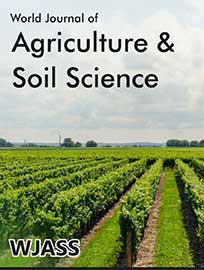 Review Article
Review Article
Biochar and its Use in Soil: Lessons from Temperate Agriculture
M Oelbermann1*, F Berruti2 and V Lévesque3
1School of Environment, Resources and Sustainability, University of Waterloo, Canada
2Department of Chemical and Biochemical Engineering, Institute for Chemicals and Fuels from Alternative Resources (ICFAR), Western University, Canada
3Kentville Research and Development Centre, Agriculture and Agri-Food Canada, Canada
M Oelbermann, Professor, School of Environment, Resources and Sustainability, University of Waterloo, Canada.
Received Date: June 16, 2020; Published Date: July 09, 2020
Abstract
Biochar is a carbon-rich product that is obtained when a sustainable source of biomass is heated without oxygen. Biochar is produced in the same way as charcoal, but its intended use differs. Biochar is manufactured with a specific set of properties (e.g. adsorption properties, ion exchange capacity, low bulk density) for its use as soil amendment and/or adsorbent, whereas charcoal has specific properties (e.g. generating heat) for its use as a fuel. Humans first used biochar in the form of charcoal (as a byproduct from cooking) mixed with broken pottery, animal bones and manure in the Brazilian Amazon. This led to the creation of the Amazonian Dark Earths or Terra Preta more than 2000 years ago by pre-Columbian cultures of this region. Whether these soils were created intentionally or if they were a by-product of human settlements remains unclear. However, Terra Preta soils are highly fertile and have demonstrated the potential for long-term carbon sequestration (Figure 1). Based on this premise, researchers have encouraged the deliberate addition of biochar to tropical soils to enhance their fertility. From this work, it was found that biochar substantially improved soil properties and crop productivity, because adding biochar to nutrient-impoverished tropical soils decreased aluminum toxicity and increased soil pH, resulting in enhanced microbial activity and nutrient availability. However, temperate soils have lower iron and aluminum oxide content, a higher pH, high-activity clays and greater soil organic matter content and will therefore respond differently to biochar than tropical soils. Amending intensively managed temperate soils with biochar is a more recent approach to agriculture, with research still in its infancy. However a soil amendment like biochar that can maintain or improve soil health, potentially decrease fertilizer input and minimize nutrient leaching will not only place less pressure on soil resources but also contribute to environmental sustainability [1].
-
M Oelbermann, F Berruti, V Lévesque. Biochar and its Use in Soil: Lessons from Temperate Agriculture. World J Agri & Soil Sci. 5(2): 2020. WJASS.MS.ID.000610.
-

This work is licensed under a Creative Commons Attribution-NonCommercial 4.0 International License.






